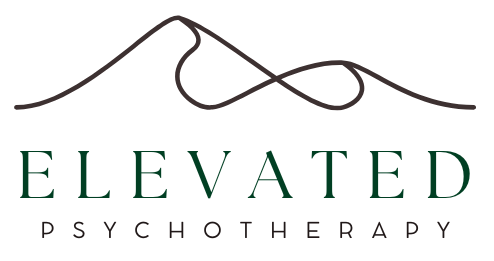
Your emotions feel overwhelming. Maybe they hit like a tidal wave, or maybe they simmer under the surface until they explode. Either way, they feel like too much. Emotions and family are intricately intertwined. Growing up, your parents may have dismissed your feelings, made you feel guilty for having them, or taught you that certain emotions were “bad.” Now, you struggle to regulate them, set boundaries, or even trust yourself.
You’re not alone. Many adults carry unresolved family dynamics into their daily lives. The good news? You can change how you relate to your emotions and your past. You can break the cycle.
Why Family Shapes Our Emotional World
Your earliest relationships, especially with your parents, shape how you experience emotions. If your caregivers were emotionally unavailable, inconsistent, or dismissive, you may have learned that emotions are unsafe. You might struggle with guilt, second-guess yourself, or feel stuck in unhealthy relationship patterns.
Some common experiences include:
- Feeling like your emotions are “too much” or “not valid.”
- Struggling to set boundaries with parents or family.
- Experiencing guilt when asserting independence.
- Feeling like you don’t know who you are outside of family expectations.
- Repeating childhood patterns in relationships.
If any of this sounds familiar, you’re not broken. You’re responding to a lifetime of conditioning. But you don’t have to stay stuck.
How Emotional Patterns Get Passed Down
Families often pass down emotional habits. Maybe your parent struggled with their own emotions and took them out on you. Maybe they ignored your feelings, teaching you to suppress them. These patterns don’t just disappear in adulthood. They show up in how you respond to stress, conflict, and relationships.
Here are a few common ways family dynamics shape emotional struggles:
- Dismissive Parents leads to Emotional Suppression
- If your parents ignored or downplayed your feelings, you may struggle to express them now. You might minimize your pain or feel guilty for needing support.
- Inconsistent Parents leads to Emotional Instability
- If love and validation were unpredictable, you might struggle with emotional highs and lows. You may fear abandonment or feel like you have to “earn” love.
- Overcontrolling Parents leads to Difficulty Trusting Yourself
- If you grew up with strict or critical parents, you may second-guess your decisions. You might feel trapped by guilt when trying to break free.
- Chaotic or Neglectful Parents leads to Emotional Overwhelm
- If home felt unpredictable or unsafe, you may experience intense emotions now. You might struggle with self-soothing or feel like emotions control you.
Breaking the Cycle: How to Heal
Healing means learning a new way of relating to yourself. It’s not about blaming your parents, it’s about taking back control. Therapy can help you recognize patterns, process old wounds, and build emotional resilience.
1. Learn to Regulate Your Emotions
You don’t have to feel controlled by your emotions. DBT (Dialectical Behavior Therapy) offers skills to help:
- Mindfulness: Learn to notice emotions without judgment.
- Distress Tolerance: Build coping skills for intense feelings.
- Emotion Regulation: Understand and manage emotional reactions.
- Interpersonal Effectiveness: Learn vital tools for communication.
2. Set Boundaries Without Guilt
You’re allowed to set limits with family. Boundaries protect your emotional well-being. They don’t make you selfish. A few key steps:
- Identify what makes you uncomfortable.
- Practice clear, direct communication.
- Prepare for pushback, but stand firm.
3. Rewire Old Beliefs About Yourself
If you grew up feeling like you had to be perfect or keep others happy, those beliefs may still drive you. Start challenging them:
- Notice when guilt or self-doubt show up.
- Ask: “Is this belief mine, or was it taught to me?”
- Replace shame with self-compassion.
4. Explore Who You Are Outside of Family Expectations
Your identity isn’t limited to who your parents expected you to be. Give yourself space to explore:
- What do you want in life?
- What brings you joy?
- What values feel true to you, not just what was passed down?
You Don’t Have to Do This Alone
Breaking generational cycles isn’t easy, but it’s possible. You don’t have to stay stuck in old patterns or let guilt keep you in unhealthy dynamics. Therapy can help you build emotional resilience, set boundaries, and create a life that feels like your own.
If your emotions feel overwhelming or your family relationships are weighing on you, reach out. You deserve support. You deserve to heal.
Share This Story
Ashley M. Allen, PsyD is a Colorado-based licensed clinical psychologist who sees clients virtually nationwide through PSYPACT. Dr. Allen specializes in LGBTQ+, alternative lifestyles, emotional disorders, ADHD, BPD and chronic illness. Stay tuned to her blog for tips on mental wellness.


